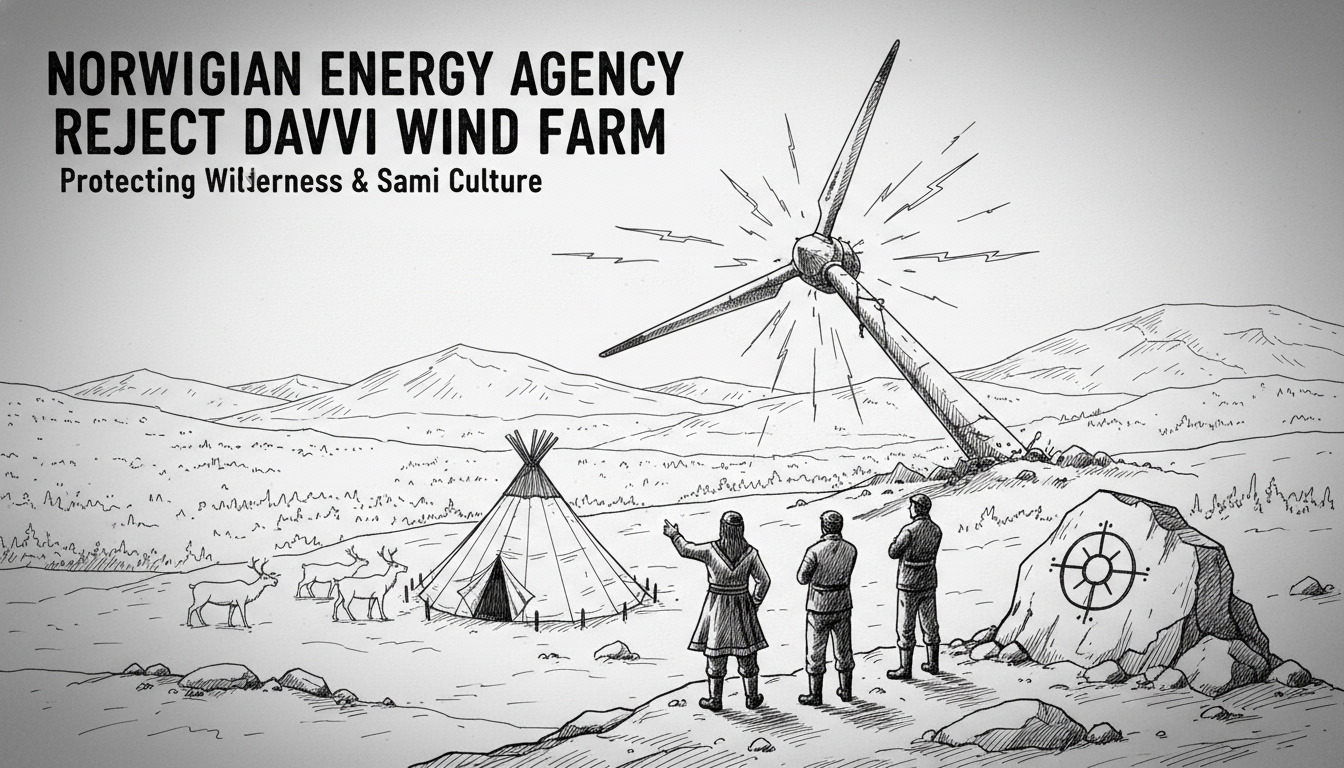Norway's Energy Directorate has rejected the application for the controversial Davvi wind farm in Finnmark county. The decision blocks development in one of Norway's largest wilderness areas.
NVE director Kjetil Lund said the refusal should not come as a surprise. He explained that building Davvi alone would reduce wilderness areas by nearly the same amount as Norway's total reduction over the past decade. The area also holds major importance for Sami cultural practices.
The project in Lebesby municipality faced strong opposition from environmental groups and Sami representatives. Developers argued it was the most advanced project that could quickly provide more local power in Finnmark.
Lund stated this was not a difficult decision for the technical agency. He noted they had previously indicated Davvi was unlikely to receive approval when they set it aside earlier.
Developers now receive a warning about the decision before a final ruling. They can comment on the notice and appeal to the Energy Department.
The rejection comes as Norway's parliament recently changed NVE's mandate. The agency can now give early rejections to projects clearly destined for refusal without conducting consultation rounds.
Business organizations and local politicians had expressed frustration about the project's suspension. They argued it violated administrative law and left companies without legal recourse.
Several political parties in parliament wanted the government to override NVE and demand proper processing of the case.
The developer had previously offered Lebesby residents cheap electricity at a fixed price of 10 øre per kilowatt-hour to gain local support.
NVE currently handles 11 power plant applications in Finnmark as part of the government's energy push for the region. Lund expects power development permits for Finnmark in coming years but says Davvi doesn't rank among the best projects.
He noted that even if Davvi received approval, new power production wouldn't arrive faster in Finnmark. The bottleneck isn't the licensing process but grid access. A new power line between Skaidi and Lebesby likely won't be ready before 2032.
This rejection shows Norway's continuing struggle to balance energy needs with environmental protection and Indigenous rights. The decision prioritizes wilderness preservation over quick power development in a region needing both.
